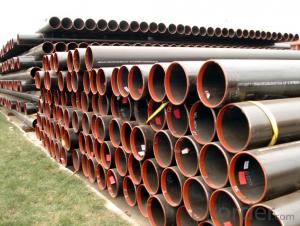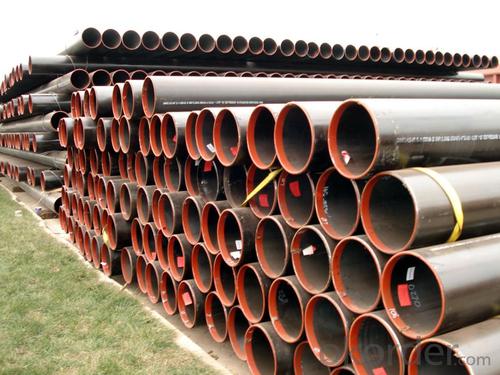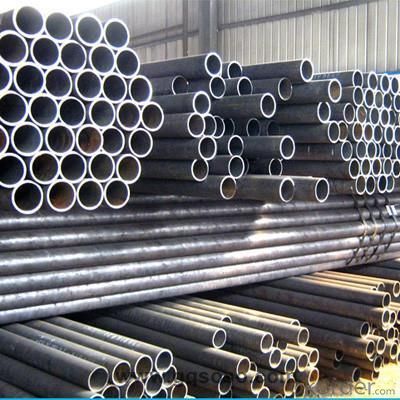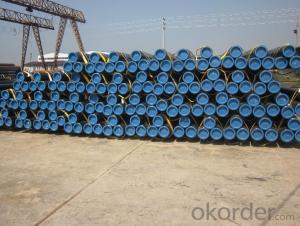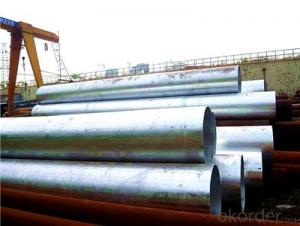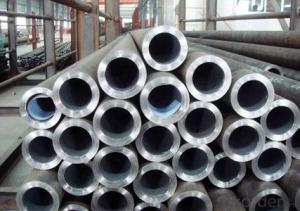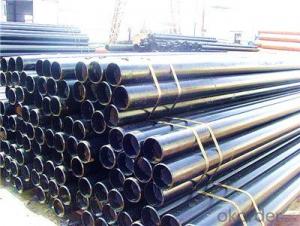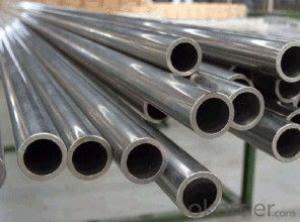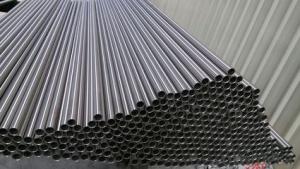CARBON STEEL SEAMLESS PIPES WITH BEST PRICE OF GOOD QUALITY
- Loading Port:
- Tianjin
- Payment Terms:
- TT OR LC
- Min Order Qty:
- 50 m.t.
- Supply Capability:
- 500 m.t./month
OKorder Service Pledge
OKorder Financial Service
You Might Also Like
1、Structure of Steel Pipe Descrption:
Having vast industrial knowledge of domain, we are offering a quality approved array of Stainless Steel Round Pipe. The Stainless Steel Round Pipe we offer is widely demanded amongst the clients for its sturdiness and reliability. These products are tested for their quality before being introduced in the market.
2、Main Features of the Steel Pipe:
·Highly demanded
·Durable
·Reliable
·resist corrosion
3、Steel Pipe Images:
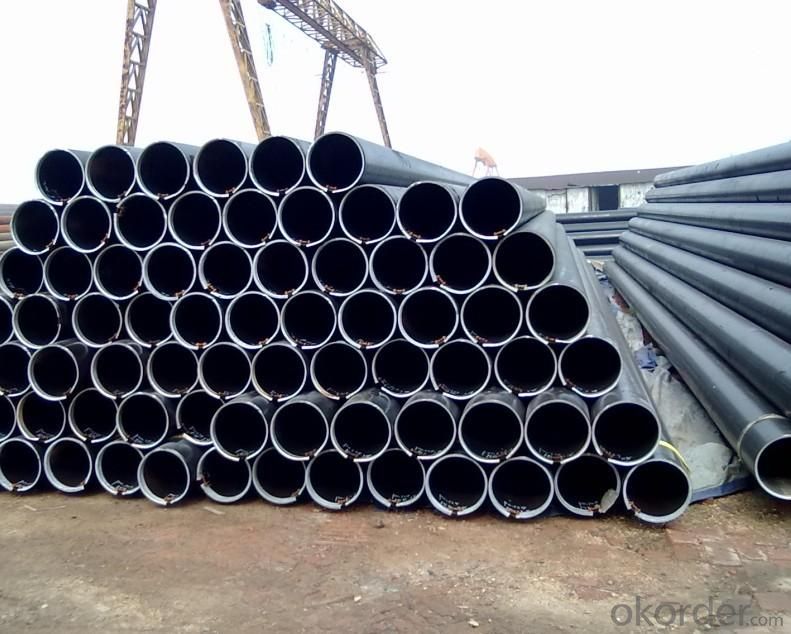
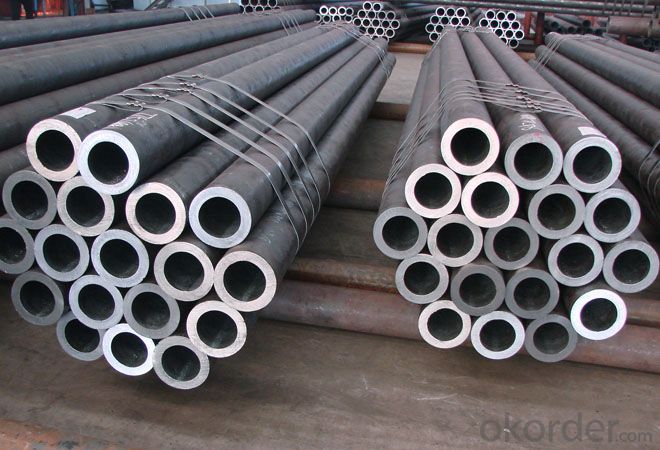
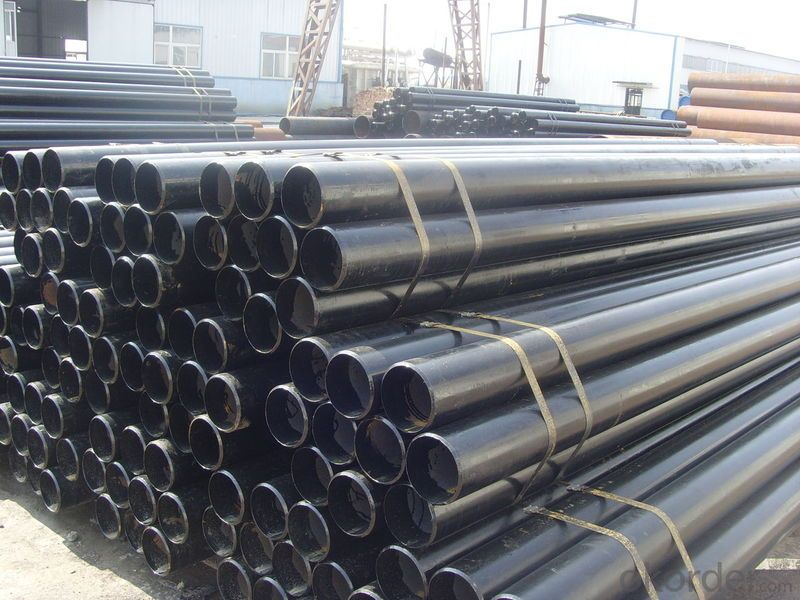
4、The Steel Pipe Specification:
Standard JIS, DIN, ASTM
JIS G3445-2006, JIS G3444-2006, JIS G3446-2004, DIN EN 10216-1-2004, DIN EN 10217-1-2005, DIN EN 10305, ASTM A106-2006, ASTM A53-2007, ASTM A789-2001, ASTM A1020-2002, ASTM A179-1990, ASTM A199Grade Cr-Mo alloy, Mo, ST35-ST52, Q195-Q345, CrNi alloy
15CrMo, 10CrMo910, 30CrMo, 15Mo3, 16Mo, St37, St52, St42, St45, Q235, Q345, Q195, Q215, Cr17Ni8, 1Cr13Mn9Ni1NThickness 2 - 50 mm Section Shape Round Outer Diameter 10 - 900 mm Secondary Or Not Non-secondary Application Structure Pipe Technique EFW Certification API Surface Treatment Paint Special Pipe API Pipe Alloy Or Not Non-alloy
Specifications
1.W.T from 2mm to 70mm
2.OD from 10 to 1200mm
3.product by our own factory
4.on time dilivery
5、FAQ of Square Tube:
①How is the quality of your products?
Our products are manufactured strictly according to national and internaional standard, and we take a test
on every pipe before delivered out. If you want see our quality certifications and all kinds of testing report, please just ask us for it.
Guaranteed: If products’ quality don’t accord to discription as we give or the promise before you place order, we promise 100% refund.
②How about price?
Yes, we are factory and be able to give you lowest price below market one, and we have a policy that “ for saving time and absolutely honest business attitude, we quote as lowest as possible for any customer, and discount can be given according to quantity”,if you like bargain and factory price is not low enough as you think, just don’t waste your time.Please trust the quotation we would give you, it is professional one.
③Why should you chose us?
Chose happens because of quality, then price, We can give you both.Additionally, we can also offer professional products inquiry, products knowledge train(for agents), smooth goods delivery, exellent customer solution proposals.Our service formula: good quality+good price+good service=customer’s trust
SGS test is available, customer inspection before shipping is welcome, third party inspection is no problem.
Any question, pls feel free to contact us !
- Q: Can steel pipes be used for chemical refineries?
- Yes, steel pipes can be used for chemical refineries. Steel pipes are commonly used in chemical refineries due to their high strength, durability, and resistance to corrosion. The harsh environment of a chemical refinery, which involves exposure to corrosive chemicals and extreme temperatures, requires materials that can withstand these conditions. Steel pipes are able to handle these challenges and are often chosen for their ability to transport various fluids and gases safely and efficiently. Additionally, steel pipes can be welded, which allows for easy installation and maintenance in complex refinery systems. Overall, steel pipes are a suitable choice for chemical refineries due to their robustness, corrosion resistance, and compatibility with the demanding conditions of this industry.
- Q: How are steel pipes used in the construction of gas distribution networks?
- Steel pipes are commonly used in the construction of gas distribution networks due to their durability, strength, and ability to withstand high pressure. These pipes are used to transport natural gas from the source to homes, businesses, and industries. The steel pipes are laid underground and connected using fittings and valves to create a network that efficiently distributes gas. It ensures a safe and reliable delivery of gas to consumers while minimizing the risk of leaks or accidents.
- Q: How do steel pipes perform in high-altitude applications?
- Steel pipes perform well in high-altitude applications due to their strong structural integrity and resistance to extreme weather conditions. They can withstand the low temperatures and high winds commonly found at high altitudes without compromising their performance or durability. Additionally, steel pipes have excellent corrosion resistance, making them suitable for areas with high humidity or exposure to moisture. Overall, steel pipes are a reliable choice for high-altitude applications due to their strength, resilience, and ability to withstand harsh environmental factors.
- Q: How are steel pipes tested for leaks?
- Steel pipes are typically tested for leaks using various methods such as hydrostatic testing, pneumatic testing, or advanced technologies like ultrasonic testing. In hydrostatic testing, the pipe is filled with water or another liquid, and pressure is applied to check for any leaks. Pneumatic testing involves using compressed air or gas to pressurize the pipe and identify potential leaks. Ultrasonic testing employs high-frequency sound waves to detect any leaks or flaws in the steel pipes. These testing methods ensure the integrity and quality of steel pipes before they are put into use.
- Q: Can steel pipes be used for hydraulic systems?
- Yes, steel pipes can be used for hydraulic systems. Steel pipes are commonly used in hydraulic systems due to their high strength, durability, and ability to handle high pressure. They provide excellent resistance to corrosion and can effectively transport hydraulic fluids, making them a suitable choice for various hydraulic applications.
- Q: What are the different coatings applied to steel pipes?
- There are several different coatings that can be applied to steel pipes to enhance their corrosion resistance and durability. Some common coatings include epoxy coatings, polyethylene coatings, zinc coatings (galvanization), and polyurethane coatings. Each coating has its own specific benefits and is chosen based on the intended application and environmental conditions.
- Q: What are the common standards for steel pipe manufacturing?
- The common standards for steel pipe manufacturing include specifications set by organizations such as the American Society for Testing and Materials (ASTM), the International Organization for Standardization (ISO), and the American National Standards Institute (ANSI). These standards cover various aspects such as size, dimensions, material properties, manufacturing process, and testing requirements to ensure the quality and consistency of steel pipes.
- Q: Can steel pipes be used for oil transportation?
- Indeed, steel pipes find application in the transportation of oil. In the oil and gas industry, steel pipes are widely utilized to transport crude oil, petroleum products, and natural gas. The reason behind their popularity lies in their robustness, endurance, and resistance to corrosion. Steel pipes possess the capability to endure high-pressure conditions, making them suitable for both onshore and offshore oil transportation. Moreover, by welding steel pipes together, extensive pipelines can be constructed, thereby providing a cost-efficient method to transport oil across long distances. In conclusion, steel pipes serve as a dependable and effective option for oil transportation.
- Q: How are steel pipes protected against external moisture?
- Steel pipes are typically protected against external moisture through various methods such as coating them with corrosion-resistant materials like epoxy or zinc, applying protective tapes or wraps, using cathodic protection systems, or utilizing corrosion inhibitors during the manufacturing process. These measures help to prevent the formation of rust and ensure the longevity and reliability of the steel pipes.
- Q: What is the maximum operating temperature for steel pipes?
- The specific grade of steel used typically determines the maximum operating temperature for steel pipes. Carbon steel pipes, for instance, can generally endure temperatures ranging from 800-1000 degrees Fahrenheit (427-538 degrees Celsius). On the other hand, stainless steel or high-temperature alloys can withstand even higher temperatures, exceeding 1200-1500 degrees Fahrenheit (649-816 degrees Celsius). To determine the precise maximum operating temperature for a particular type of steel pipe, it is crucial to refer to the manufacturer's specifications or industry standards. This is because varying grades and compositions may have distinct temperature limits.
Send your message to us
CARBON STEEL SEAMLESS PIPES WITH BEST PRICE OF GOOD QUALITY
- Loading Port:
- Tianjin
- Payment Terms:
- TT OR LC
- Min Order Qty:
- 50 m.t.
- Supply Capability:
- 500 m.t./month
OKorder Service Pledge
OKorder Financial Service
Similar products
Hot products
Hot Searches
Related keywords
